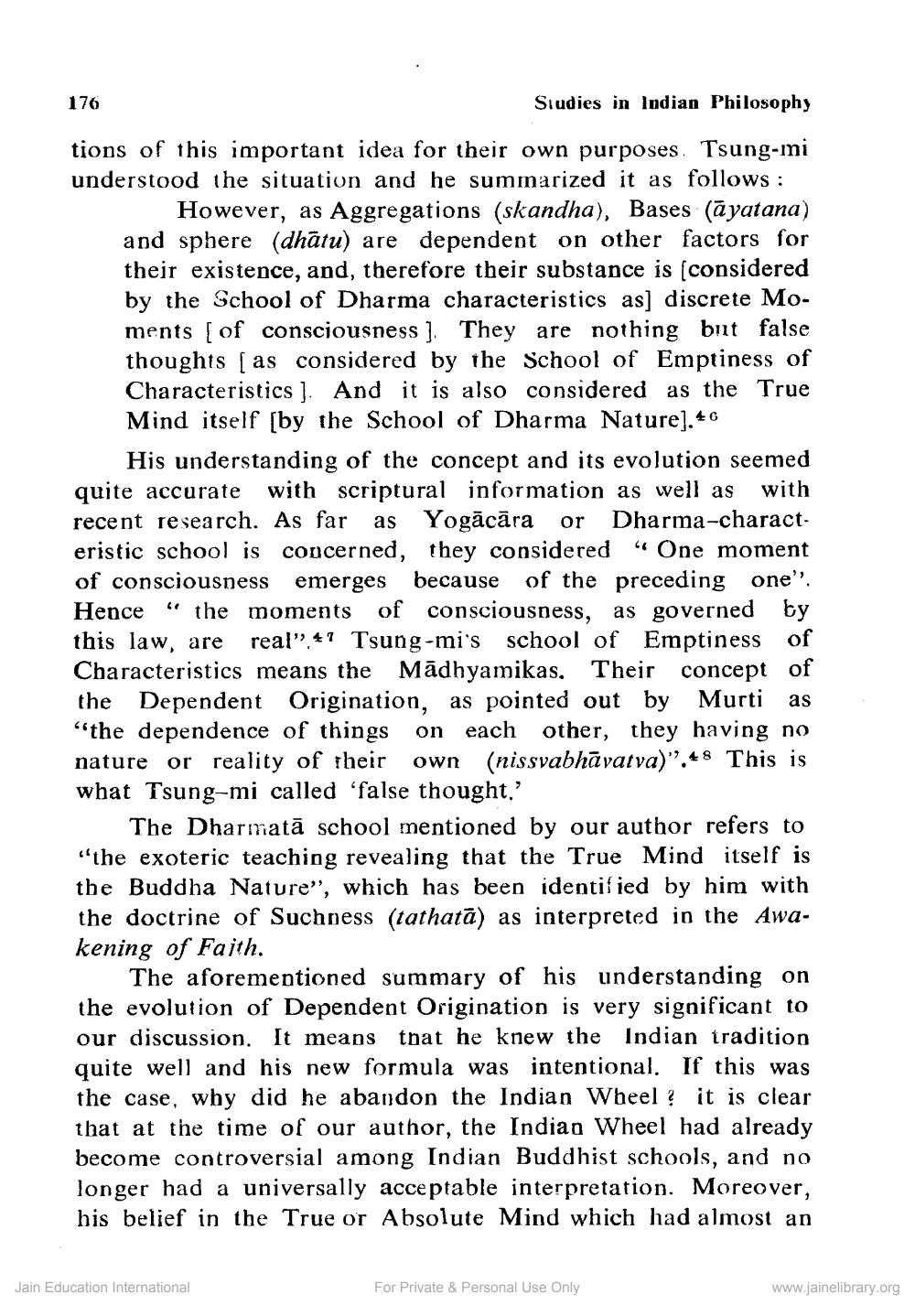________________
176
Studies in Indian Philosophy
tions of this important idea for their own purposes. Tsung-ini understood the situation and he summarized it as follows:
However, as Aggregations (skandha), Bases (āyatana) and sphere (dhātu) are dependent on other factors for their existence, and, therefore their substance is (considered by the School of Dharma characteristics as) discrete Moments [ of consciousness ). They are nothing but false thoughts (as considered by the School of Emptiness of Characteristics). And it is also considered as the True Mind itself (by the School of Dharma Nature].46
His understanding of the concept and its evolution seemed quite accurate with scriptural information as well as with recent research. As far as Yogācāra or Dharma-characteristic school is coucerned, they considered “One moment of consciousness emerges because of the preceding one', Hence “ the moments of consciousness, as governed by this law, are real” 41 Tsung-mi's school of Emptiness of Characteristics means the Mādhyamikas. Their concept of the Dependent Origination, as pointed out by Murti as "the dependence of things on each other, they having no nature or reality of their own (nissvabhāvatva)". 48 This is what Tsung-mi called 'false thought.'
The Dharmatā school mentioned by our author refers to "the exoteric teaching revealing that the True Mind itself is the Buddha Nature”, which has been identified by him with the doctrine of Suchness (tathatā) as interpreted in the Awakening of Faith.
The aforementioned summary of his understanding on the evolution of Dependent Origination is very significant to our discussion. It means that he knew the Indian tradition quite well and his new formula was intentional. If this was the case, why did he abandon the Indian Wheel ? it is clear that at the time of our author, the Indian Wheel had already become controversial among Indian Buddhist schools, and no longer had a universally acceptable interpretation. Moreover, his belief in the True or Absolute Mind which had almost an
Jain Education International
For Private & Personal Use Only
www.jainelibrary.org




